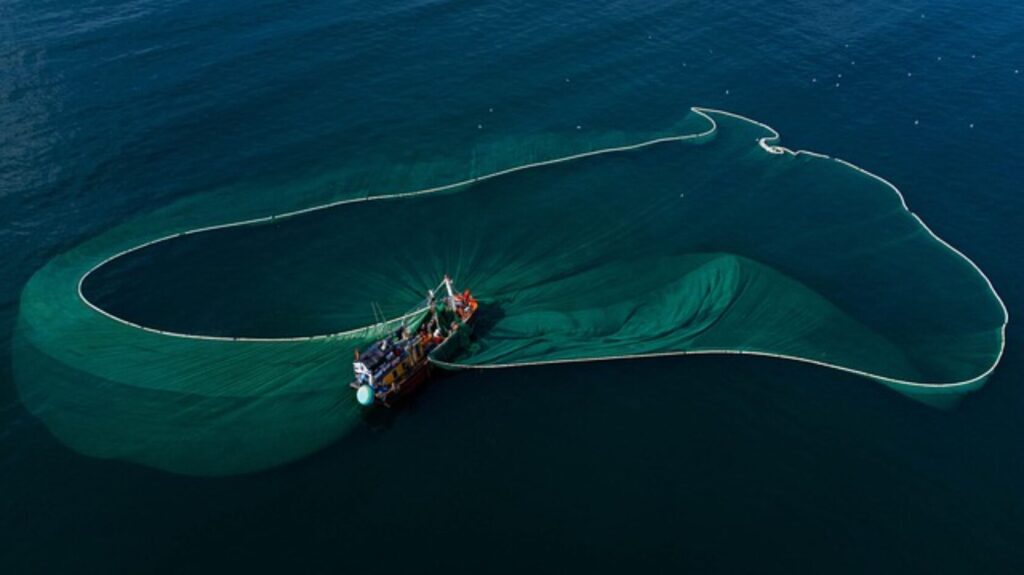Latin America and the Caribbean has an historic opportunity to position itself as a leading region in the sustainable blue economythanks to its vast marine wealth and its strategic role in the global ocean agenda.
With 47 of the world's 258 marine ecoregions, and 23 countries with more marine territory than terrestrial, the region is preparing to participate in the Third United Nations Ocean Conference (UNOC3), which will take place in June 2025 in Nice, France, highlights the Economic Commission for Latin America and the Caribbean (ECLAC).
In order to define regional priorities and strategies, the virtual event "Regional Blue Talk: Latin America and the Caribbean on the road to UNOC3".organized by the ECLACtogether with the embassies of Costa Rica and France in Chile. Government representatives, marine experts, social and scientific organizations met to build a shared vision on the future of the ocean.
Regional ocean wealth, a key to development
The region is eminently oceanic: on average, 50% of its surface area corresponds to the sea, a figure that rises to 91% in the insular Caribbean and reaches almost 99% in countries such as Barbados and Antigua and Barbuda. This reality offers enormous potential for the economic and social development based on the ocean, but it also entails great responsibilities.
During the opening of the meeting, the Executive Secretary of ECLAC, José Manuel Salazar-XirinachsHe pointed out that activities such as fishing, fishing and aquaculturethe maritime transport and the coastal tourism are economic pillars in the region.
"However, this relevance is not yet reflected in sufficient investment in marine-coastal science, technology and innovation. In addition, our marine ecosystems face increasing pressures, such as overfishing, plastic and nutrient pollution, biodiversity loss, and the impacts of climate change, such as acidification and sea level rise," he said.
The possible development of deep-sea mining, whose expansion raises serious questions about the integrity of as yet little-studied habitats and the global rules for their governance, is another risk to consider, he warned.
Ocean crisis and investment gap
The ECLAC indicated that the region is facing multiple challenges that threaten its marine ecosystemsThese include overfishing, plastic and nutrient pollution, biodiversity loss and the impacts of climate change, such as sea level rise and acidification. In addition, there are emerging risks such as possible deep-sea mining, whose environmental impact is still uncertain.
Gina Guillén GrilloCosta Rica's Presidential Envoy for the Ocean, called for accelerated actions to comply with the Sustainable Development Goal 14 (SDG 14), focused on the conservation and sustainable use of the ocean.
"It is very important that in our region we find solutions to the crises facing the ocean through strategies that accelerate compliance with SDG 14, which is why several countries are promoting this blue agenda," he said.
Towards UNOC3: proposals from the region
During the event, three major thematic areas aligned with SDG 14 were addressed:
- Sustainable fisheries and effective ocean governance
- Transition to a blue economy in the context of climate change
- Cooperation for a clean and healthy ocean
Participants included marine policy experts, representatives of women's networks in maritime authorities, artisanal fisheries leaders and scientists from United Nations agencies. All agreed on the importance of ensuring that local and community voices are present in ocean decision-making processes.
ECLAC also announced the presentation of a new study, "Overview of the ocean, seas and marine resources in the sustainable development of Latin America and the Caribbean."which will be officially launched during UNOC3 on June 12, in a side event with CAF and the governments of France and Costa Rica.
This report will provide data, diagnostics and public policy recommendations to promote a more efficient and effective inclusive and sustainable blue economyas the region's concrete contribution to the 2030 Agenda.
Source: ECLAC


